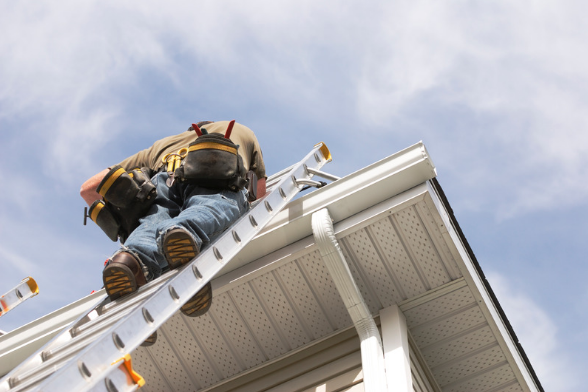Have you ever faced a home emergency or a repair you weren’t expecting? Home emergencies are costly and can quickly derail your budget if you don’t plan for them. They can also lead to extensive damage if not handled quickly. To avoid such a situation, keep aside some money for this.
5 Most Common Home Emergencies
Here are five common home emergencies that you should always budget for:
Roof Repairs
Lousy weather, leaks, or wear and tear can damage a roof. You’ll experience leaks, poor ventilation, or even structural damage, which is costly. Plan for regular maintenance and inspections. Learn how much a roof costs, whether it’s a replacement or repair. It depends on the size, materials, and complexity of the roof. Even before you detect any issues, find a trusted, qualified roofer. This way, you’ll have a go-to person if something does happen. It also pays to know what your insurance policy covers.
Plumbing Leaks and Repairs
Over time, plumbing systems corrode or become clogged, leading to water damage or mold growth. You may even experience dramatic drops in water pressure or unusual noise from the pipes. Dripping faucets, toilets, and showers are the most common signs of plumbing issues.
Check for leaks regularly and replace old fixtures, including pipes. Purchase an inexpensive water alarm alerting you to even tiny leaks. Other signs of leaks are unusually high water bills, musty odors, and water spots on walls or ceilings. It’s best to contact a professional for an inspection.
Heating and Cooling System Maintenance
Maintaining the HVAC system offers a comfortable living environment. Have the unit serviced annually. During an inspection, a professional will check the operating pressure, temperature readings, and airflow. They can also identify any potential problems that need addressing. It’s also a chance to clean the system thoroughly, replace the filter, and inspect the electrical connections.
Most importantly, learn how the HVAC unit works. It includes knowing the usual sounds it makes, how long it takes to warm up or cool down, and how frequently it cycles. You’ll easily detect issues and know when to call a professional. You’ll also answer any questions they may have effectively.
Water Heater Problems
Imagine not having hot water when you need it. A malfunctioning water heater can happen for a variety of reasons. They include the pilot light going out, sediment buildup, and broken heating elements. Regular maintenance will prevent these issues from occurring. However, replace the system when it’s too old or inefficient. The signs of an old or weak water heater include rust-colored water, rumbling and banging noises, and poor performance.
Since water heater problems can become a safety hazard, hire an experienced professional to diagnose and repair the issue promptly. Don’t wait for the heater to break down completely. It will be more expensive and disruptive to your daily routine.
Natural Disasters
Floods, fires, ice storms, hurricanes, and other natural disasters cause significant damage to your home’s systems. Fortunately, most homeowners’ insurance policies cover damage caused by natural disasters. However, keep some money aside to cover the out-of-pocket costs for any repairs. For instance, if a storm damages your roof, you may need to repair broken gutters. Document any damage from a natural disaster to receive the compensation you deserve.
How to Prepare for Emergencies
By preparing for emergencies, you’ll have the funds, professionals, and knowledge to tackle any issue. An emergency fund is the best defense against any disaster. However, maintenance will keep the emergencies low. Inspect the systems, replace them when old, and attend to minor issues on time. Other than this,
- Know your area’s weather patterns and the risks, such as flooding and fires
- Have a plan on what to do in the event of an emergency
- Stock up on first aid kits, flashlights, and batteries
- Have a contact list of resources like plumbers, electricians, and technicians to solve your issue quickly
- Have a backup generator or alternate source of power
- Install and regularly check smoke detectors, fire extinguishers, and burglar alarms
- Make sure all fireplaces and chimneys are serviced annually
- Invest in surge protectors, uninterruptible power supplies, and other safety devices
Preparing for emergencies will give you peace of mind knowing you can handle any situation. Educate everyone in your household on how to respond to an emergency. They should know the evacuation plan and familiarize themselves with the items in a disaster supply kit. Most importantly, stay alert and assess the situation before taking any action.
Other posts you might enjoy:
The Telltale Signs: When is it Time for Home Repairs or Renovations?






